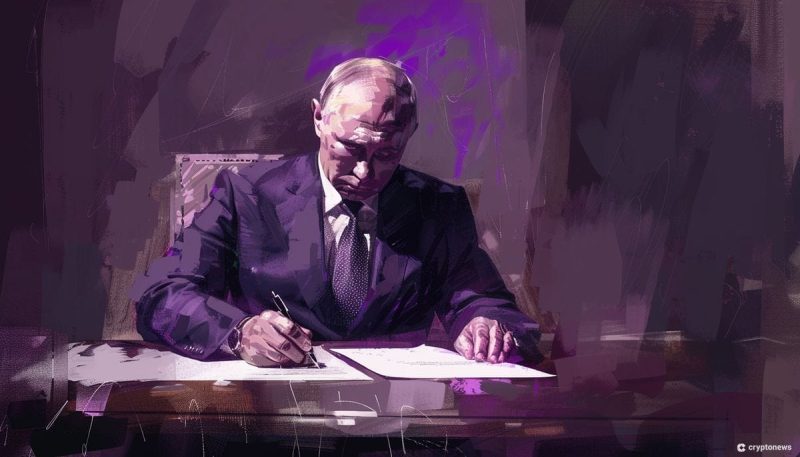
Putin Signs ‘CBDC, Digital Assets Payments’ Bill into Law
Russian President Vladimir Putin signed a law allowing firms in the country to use digital financial assets including the digital ruble in international payments on March 11.
Moscow has fast-tracked the bill in an apparent bid to help domestic companies use digital tokens and CBDCs to evade sanctions.
Putin Signs off on Landmark Bill
The bill was hurried through the State Duma, the lower Russian parliamentary house, in late February this year.
After passing its second and third readings in the Duma, the bill was hurriedly passed on to the upper house, the Federation Council, on March 6.
The new law appears to be the brainchild of the State Duma’s Committee on the Financial Markets. The committee approved key amendments on February 21.
The Russian media outlet RBC reported that the law will come into force on its “date of official publication.” This is with “the exception of a number of provisions, which will come into force later.”
The law establishes a regulatory framework for “conducting foreign trade transactions using digital assets as a means of payment.”
Moscow Aiming to Improve Options for International Trading Firms
The Committee’s Chairman Anatoly Aksakov said that using “digital assets” in foreign trade transactions would “help Russian importers and exporters work more effectively with friendly countries.”
US, UK, and EU-led sanctions have all but frozen Russian banks out of the international trade picture, and put an effective end to dollar-denominated trade.
But Aksakov claimed that digital asset-powered trade could “partially mitigate the impact of sanctions on Russia.”
Aksakov has also stated that several Russian allies are “very interested” in using digital assets and CBDCs in trade deals with Moscow.
The headquarters of the Russian Central Bank in Moscow, Russia. (Source: Kuba [CC BY 3.0])
Putin Signs Bill Giving Central Bank New Powers
The law Putin signed on March 11 gives Russia’s Central Bank new regulatory powers over the payments sector.
The bank is already the sole issuer of the digital ruble and the chief regulator of the fast-growing Russian digital financial assets (DFAs) space.
However, the new law will also give the bank the “authority to regulate transactions made using digital financial assets.”
DFA issuers must provide the Central Bank with information about the recipients of assets. And firms that use DFAs and CBDCs in payments will be obliged to log all transactions on a newly created information system.
Russian law recognizes a large number of digital assets as DFAs. These include digitized commodities and securities, digital rights, and digitized monetary claims.
Investors will also be able to buy digital shares in unlisted Russian companies under the new law.
Russia is weighing options for big tax increases after next week’s election, in order to fund Vladimir Putin’s invasion of Ukraine https://t.co/a6aPXfFSdw
— Bloomberg (@business) March 11, 2024
Before the new law’s launch, Russian law contained no provisions for using DFAs in foreign trade.
Some Russian experts have urged caution, however. They note that the law requires firms to register all DFA-related accounting on Russian systems.
Crypto firm moved $4.2m of assets to digital wallet linked to alleged Russian arms dealer https://t.co/5LYEUeEmXp
— Guardian news (@guardiannews) March 11, 2024
The law also has no provisions for overseas DFAs. This, analysts say, “may be an obstacle for non-Russian residents.”
Unless Putin signs off on a reciprocal law, it remains to be seen if Russian trading partners will prove keen to do DFA and CBDC-related business with Moscow.
The post Putin Signs ‘CBDC, Digital Assets Payments’ Bill into Law appeared first on Cryptonews.

